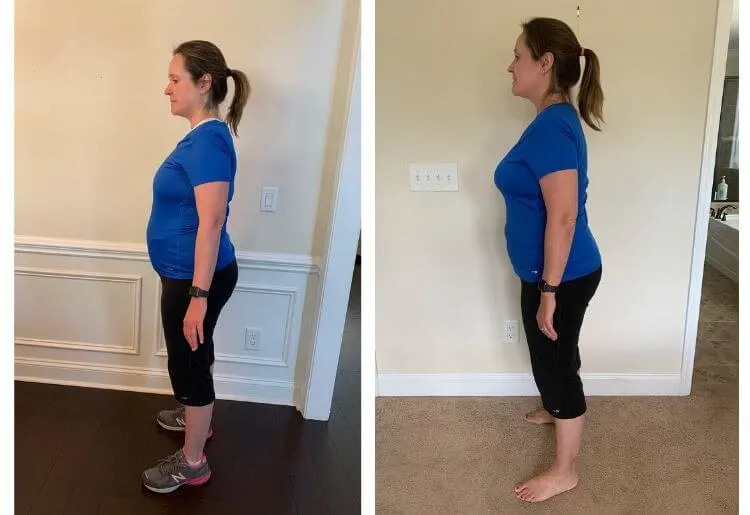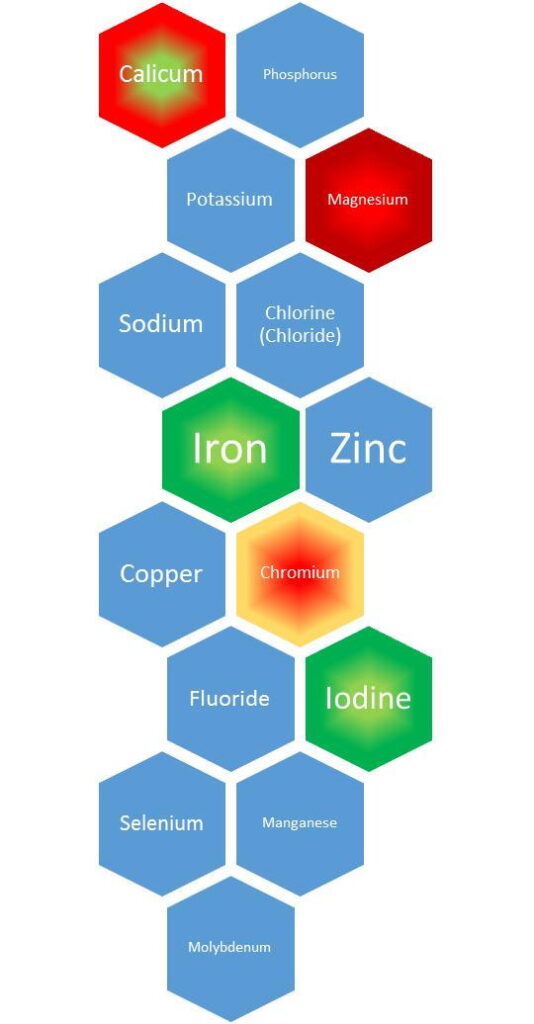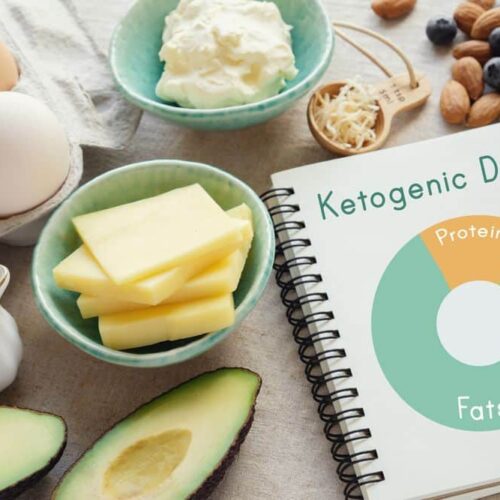Mediterranean Diet
DASH Diet
Flexitarian
Mayo Clinic
Noom DietMediterranean Diet
What is the Mediterranean diet?
The Mediterranean diet isn’t so much a specific diet plan as it is a way of eating. It’s based on the cuisines and eating styles of countries that border the Mediterranean Sea (e.g., Greece, Italy, Morocco) and is characterized by healthy consumption of seafood, poultry, whole grains, fruits, vegetables, legumes, nuts, eggs, beans and olive oil.
While following the Mediterranean diet, you’ll eat foods rich in antioxidants, omega-3 fatty acids and dietary fiber, which makes this diet a great way to support gut health and fight inflammation. It also emphasizes foods with a low glycemic load, ideal for people looking to manage their blood sugar. Additionally, according to a 2020 review published in Advances in Nutrition, the Mediterranean diet provides strong and consistent benefits for improvement in cardiometabolic parameters, like blood pressure, cholesterol and fasting blood glucose.
In addition to the health benefits, studies have found that adherence to the Mediterranean diet is associated with short- and long-term weight loss. But it’s worth noting that the Mediterranean diet typically requires you to cook your meals, so it may not be the best weight loss diet for people who can’t cook or have busy schedules. On the bright side, meta-analysis studies have observed that the overall amount of weight loss resulting from adherence to the Mediterranean diet is comparable to other diets followed by overweight and obese individuals; so if you can’t quite keep up with the culinary demands of the Mediterranean diet, rest assured that there are other diet options out there that can help you reach a healthy weight.
Key foods
Your food options are flexible with a Mediterranean diet. It encourages the consumption of many plant-based foods and whole grains and calls for olive oil as your primary source of fat. It also emphasizes fish, poultry and lean meats as your primary protein sources. Fruit is recommended as a replacement for sugary desserts, and low-fat dairy products (e.g., yogurt) should replace high-fat creams and icing.
Food limitations
The Mediterranean diet recommends limited consumption of red meat, dairy and alcohol. It strictly limits sweets and high-sugar foods. Additionally, it recommends substituting saturated fats (unhealthy fats) for unsaturated fats (healthy fats) whenever possible.
How the Mediterranean diet works for weight loss
The Mediterranean diet is all about replacing unhealthy food choices with healthy foods from every food group to help dieters lower their calorie intake. This diet may also help combat factors associated with unhealthy weight gain, such as inflammation, poor gut health and insulin resistance.
Who is it best for?
The American Heart Association endorses the Mediterranean diet as heart-healthy, making it a great diet choice for people looking to support their heart health. Some experts also regard the Mediterranean diet as one of the best diets for health problems linked to inflammation, including Crohn’s disease, irritable bowel syndrome, rheumatoid arthritis and ulcerative colitis.
For help staying on track with the Mediterranean diet, we recommend using Noom. The weight loss program helps you understand your eating habits and make sustainable choices for long-term weight loss.
DASH Diet
What is the DASH diet?
DASH diet stands for Dietary Approaches to Stop Hypertension. As the name suggests, the diet is intended to help people lower their blood pressure and, by extension, reduce their risk of developing heart disease. It does so by reducing your intake of foods associated with LDL (low-density lipoprotein) cholesterol, or “bad” cholesterol, which can build up in the walls of the arteries and cause them to narrow and harden.
According to a 2019 systematic review published in Journal of the American College of Nutrition, adherence to the DASH diet is also associated with a decreased risk of cancer.
Beyond its observed health benefits, the DASH diet is one of the best diets for weight loss because it emphasizes the consumption of essential minerals like calcium, magnesium and potassium. This is important to help dieters lower their risk of incurring nutrient deficiencies while following a low-calorie diet. Additionally, these minerals are associated with improved cardiac health with benefits that include helping the body regulate blood pressure and helping blood vessels contract and relax.
Key foods
The DASH diet is similar to the Mediterranean diet. It emphasizes fruits, vegetables and whole grains. Low-fat or non-fat dairy foods, nuts, seeds, lean meats, poultry and seafood are also allowed. People with gluten intolerance can opt for the gluten-free variation of the DASH diet, in which the recommended sources of grains include quinoa and brown rice.
Food limitations
The DASH diet limits food high in saturated fat, cholesterol and trans fat. It strictly limits sweets, sugary beverages, red meats and high-sodium foods. On the DASH diet, sodium intake is limited to 2,300 milligrams per day.
How the DASH diet works for weight loss
The DASH diet follows a 28-day eating plan of guided meals and recommended workouts to help you lower your daily calorie intake and improve cardiometabolic parameters associated with unhealthy weight gain. On top of that, the DASH diet incorporates tips for long-term weight management, like how to deal with stress and improve the quality of your sleep.
Who is it best for?
The DASH diet is worth consideration by individuals of all ages looking to address high blood pressure and other cardiovascular issues. It is also recommended for older adults (<65 years), for whom the incidence of hypertension is an estimated 70 percent.
Flexitarian
What is the Flexitarian diet?
Often called a semi-vegetarian diet, the Flexitarian diet is a flexible version of a vegetarian diet characterized by high daily servings of fruits and vegetables, plus occasional meat consumption (one to three times weekly, but not exceeding 26 ounces).
According to some research studies, the Flexitarian diet may help you get rid of stubborn belly fat. In a 2020 study on 578 individuals from Germany, adherence to a plant-based diet was associated with lower abdominal fat. Research suggests that the Flexitarian diet may also help reduce blood pressure, cholesterol and the risk of developing Type 2 diabetes. If you’ve ever considered going vegetarian or vegan, the Flexitarian diet is a great way to ease into those restrictive diets while also losing weight.
Key foods
With the Flexitarian diet, plant-based foods are emphasized (especially leafy greens), but you can still eat meat occasionally. However, any meat you consume should be organic, free-range or grass-fed. Whole foods and non-meat proteins are encouraged.
Food limitations
Technically, no food is entirely off limits in the Flexitarian diet, but your weekly meat consumption should be low compared to the amount of fruits and vegetables you eat. The diet also strictly limits highly processed foods and sugary beverages.
How the Flexitarian diet works for weight loss
Plant-based diets that prioritize fruits and vegetables while limiting meat consumption have been shown in studies to help dieters lose weight and shed body fat. Because whole plant foods contain mostly water by weight, they generally have a low-calorie density. When combined with the fact that people typically consume the same weight of food during meals, the advantage of consuming foods low in calorie density is that these foods can contribute to stomach volume, feelings of fullness and satiety while maintaining low caloric intake.
Who is it best for?
The Flexitarian diet is best for people who want an eating plan that can help them reduce their caloric intake. It is often recommended as a dietary intervention for obesity.
We recommend using Noom if you want help trying the Flexitarian diet as part of your weight loss journey. The weight loss app emphasizes building healthy habits to improve your relationship with food.
Mayo Clinic
What is the Mayo Clinic diet?
The Mayo Clinic Diet is designed to help you lose six to ten pounds in the first two weeks and maintain a healthy weight “for a lifetime.”
The diet is split into two phases:
Phase one, called the “lose it” phase, teaches you how to break five unhealthy habits and add ten healthy habits to your lifestyle. In this phase, you can’t eat any sugar that doesn’t come from fruit, nor can you drink alcohol, dine out or eat while watching TV.
Phase two is referred to as the “live it” phase. It transitions you to a new health-conscious routine that prioritizes healthy eating habits and regular exercise. It aims to help you view your food choices as a source of preventative healthcare rather than a quick-fix weight loss method.
We like the Mayo Clinic diet because it is a flexible weight loss plan that you can tailor to your food preferences and dietary restrictions. If you need more specific guidance, you can choose from five different meal plans: the Original Mayo Clinic Diet, Higher Protein, Health Keto, Vegetarian and Mediterranean.
Key foods
Your choice of food is flexible as long as it’s nutritious. The diet encourages unlimited amounts of fruits and veggies and restricts the consumption of sweets to 75 calories daily. Whole grain cereals, fish, lean protein (nuts) and healthy fats are also recommended.
Food limitations
The Mayo Clinic Healthy Weight Pyramid has five levels: fruits and vegetables at the bottom, followed by carbohydrates, protein and dairy, and fats and sweets at the top. Dieters are encouraged to get most of their food intake from the base of the pyramid and less from the top.
How the Mayo Clinic diet works for weight loss
Dieters follow the Mayo Clinic Healthy Weight Pyramid to eat foods that are filling but low in calories. It focuses on portion sizes so you consume fewer calories during meals and snacking.
In addition to healthy, portion-controlled eating, participants are encouraged to do at least 30 minutes of physical activity daily.
Who is it best for?
The Mayo Clinic diet is best for individuals interested in transitioning to a new eating method geared toward long-term weight management rather than quick (yet fleeting) results.
Noom
What is Noom?
Noom is a psychology-based approach to dieting. It’s designed to help dieters make meaningful behavioral changes that promote life-long healthy eating habits. Based on 40 years of behavioral science research, Noom identifies the reasons you struggle with dieting and provides a personalized plan to help you overcome them.
After setting up your Noom account, you’ll complete a 15-minute quiz about your weight loss goals, health status, body composition and prior dieting experiences. Based on your answers, you’ll then receive reasonable daily goals to help you both lose weight and make sustainable lifestyle changes for lifelong weight management.
Over the course of the program, you can participate in daily lessons that aim to help you find the triggers behind your unhealthy eating habits, uncover emotional ties to food and combat psychological barriers that keep you from maintaining a healthy diet long-term.
We tried the program for 30 days and wrote an in-depth Noom review if you want more details.
Key foods
Noom focuses on less calorie-dense foods that help you feel full quicker to prevent overeating. Your food options are flexible and include fruits, veggies, whole grains, red meat, poultry, fish and low-fat dairy products.
Food limitations
Rather than restrict foods, Noom uses a calorie budget system. In this system, you can eat whatever foods you want as long as you don’t exceed your budget.
How Noom works for weight loss
Noom combines psychology, human coaching and technology to create a customized diet plan that you can easily fit into your everyday routine and maintain long-term. When you sign up, you get 24/7 access to virtual health coaches and nutritionists via the mobile app and daily encouragement as you work toward your weight loss goal.
Who is it best for?
We highly recommend Noom for people who have trouble adhering to a diet long-term.




















